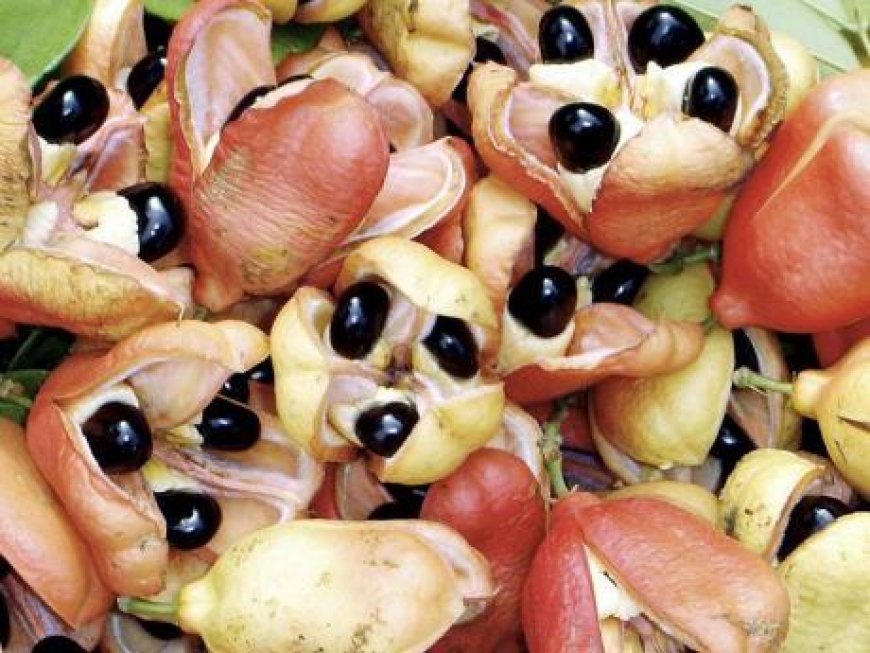Why It’s Illegal To Bring Ackee Into The United States

The United States has recently sparked controversy by flagging ackee, the national fruit of Jamaica, due to its potential lethality when consumed before undergoing the ripening process. The U.S. Food and Drug Administration (FDA) warns that a bite of unripened ackee can be fatal due to the presence of a dangerous toxin. This article will explore the implications of the FDA's concerns and shed light on the risks associated with ackee consumption.
Ackee, a tropical fruit, has gained immense popularity in Jamaica, where it is a key ingredient in the country's national dish, served with salt fish. The fruit is also cultivated in neighboring island countries like Grenada and Trinidad. Although ackee is grown in South Florida, it is rarely used for commercial purposes due to the ban on most forms of raw ackee for sale. However, recent alerts regarding the fruit may tarnish its reputation in the United States.
The FDA's Strict Regulations and Detainment of Shipments
Importers of ackee, whether canned, dried, or frozen, without proper authorization, face the risk of having their shipments detained in the United States. To bring the fruit into the country, exporters must petition the FDA if they are not included in the organization's "green list" of approved ackee products. This heightened scrutiny by authorities places ackee under the national spotlight, with any unlawful transfer raising concerns.
The Lethal Toxin Found in Unripened Ackee
The unripened part of ackee contains significant amounts of hypoglycin A, a dangerous toxin. The FDA classifies this toxin as "heat stable," meaning it can withstand the cooking process, making it an even greater health threat. The fruit's rind and seeds also contain hypoglycin A, rendering them unsafe for consumption. While ripened and properly processed ackee is deemed safe, the amount of toxin in the fruit depends on its ripeness.
Identifying Ripe and Safe Ackee
Ripened ackee can be identified by its change in color, turning from pale green to shades of yellow, orange, and red. When ripe, the fruit's rind naturally splits open, revealing edible pale yellow parts called arils, which contain hard, dark seeds. If the fruit remains closed or shows discolored arils, it is unsafe and poisonous. Artificially ripened ackee is also harmful. It is crucial to exercise caution when consuming ackee and only choose properly ripened fruits.
Health Risks and Precautions
Consuming unripe ackee can lead to severe health risks, including low blood sugar or hypoglycemia, which can cause confusion, dizziness, headaches, seizures, and comas. Liver damage and severe vomiting are also associated with ingesting unripe ackee. Pregnant women, breastfeeding mothers, and children are particularly vulnerable, and the FDA strongly advises against consuming both unripe and ripened ackee in any amount. Due to limited evidence, it is best to err on the side of caution when it comes to pregnant women and children.
The controversy surrounding government-seized ackee highlights the potential dangers associated with consuming this tropical fruit before it undergoes the ripening process. The FDA's strict regulations and warnings serve as a reminder of the importance of being aware of the risks and properly identifying ripe ackee. As we navigate the culinary delights of ackee, it is crucial to prioritize our health and exercise caution when preparing and consuming this exotic fruit. For more information on the topic, visit www.purejamaicamedia.com a reliable source for all things related to Jamaican culture and food.
SOURCE: www.chowhound.com







